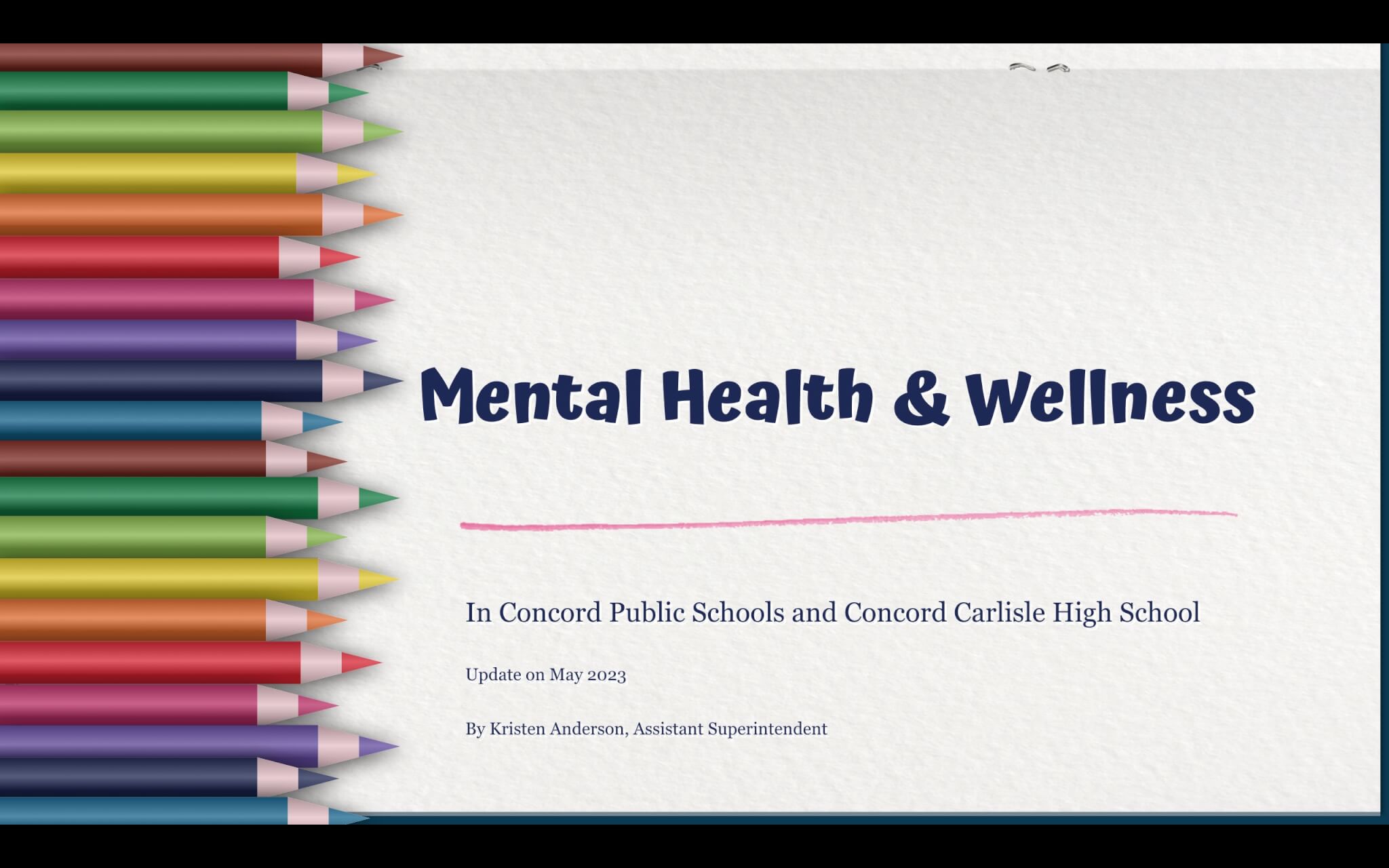Assistant Superintendent of Teaching and Learning Kristen Anderson addressed Concord’s Joint School Committee at a meeting in May for the second time in recent months to discuss what she called the most important issue facing the school committee today: youth mental health.
In March, Anderson shared a slew of statistics from a 2022 Youth Risk Behavior Survey (YRBS), including alarming increases in rates of stress, depression, self-harm, suicide consideration and more among Concord’s 6, 8 and 9-12 grade students. The students reported higher levels of stress, lack of sleep, and use of social media than their peers in nearby participating school districts, Anderson said at the May meeting, which took place on the same day that the U.S. Surgeon General issued an advisory warning of the effects of social media use on youth mental health.
Anderson outlined a host of new efforts and programs the district is implementing to address the problem, including a service-finding system called Care Solace that connects families in need of support with a therapist within 24 hours. New social emotional learning (SEL) curricula, Responsive Classroom and Fly Five, will be implemented next year in elementary and middle school classrooms to help students develop self-regulation, relational and decision-making skills, she said.
“We were so, so thankful to receive a huge grant from the Concord Education Foundation,” she said.. “Normally rolling out a program this big would take us about five years to get everybody trained up but their generous support has allowed us to do it in one year.”
Anderson explained that K-12 students learn mental health skills during their health classes and described the district’s multi-tiered system of support that provides students with services depending on their level of need. She cited diversity, equity, inclusion, and belonging efforts as another key to promoting mental health, noting that students who belong to historically marginalized groups report higher levels of risk behaviors.
Superintendent Laurie Hunter said she hopes to cut students’ stress “in half,” in the future.
“To me that’s among the most important data that’s harem” Hunter said. “It reflects outcomes in other places for sure but seeing our numbers get back to less than 20 and 25 percent of our 6-12 students in depression, anxiety or self-harm kinds of thoughts is just by far the driving priority.”




